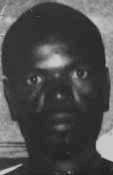Swaziland stunned by serial killings
Nampa-Sapa-AFP
Wednesday, April 25, 2001
MBABANE - The murder in Swaziland of at least 28
people - mostly women - in a spate of suspected serial killings has
rattled the sense of well-being in the sleepy mountain kingdom, known
for its low crime rate and friendly people.
Stunned residents are blaming everything from
religious excess to a sexist culture for the gruesome killings in the
remote southeast which have forced Swaziland's one million residents to
re-examine the national psyche.
Police uncovered 28 decomposed bodies, mostly of
women, in a commercial forest at Malkerns, about 50 kilometres from the
capital in an operation that lasted several weeks and ended last
Wednesday.
Law officials believe the murders were carried out
over a period of 10 months.
They say many of the victims appeared to have been
sexually abused before being killed.
Most of the bodies were naked and used condoms were
found near the shallow graves where they were buried.
Residents told journalists the Usuthu Pulp Forest
where the bodies were found was a popular sex spot.
The first three of the 28 corpses were uncovered only
days after police shot and killed a suspected serial killer who had been
linked to six other corpses unearthed in another part of the country
earlier.
It has not been established whether that man, Bongani
Vilakati, was responsible for the subsequent killings.
Police have offered a N$50 000 reward - many years of
income for most Swazis - for information leading to the arrest of the
killer or killers and report some progress in their investigations.
However, apprehensive residents have urged the
government to seek international help - possibly from South Africa and
Britain - to investigate the crimes.
"We have reason to applaud the police for the
brilliant work they have done so far, but, because we do have no
experience in dealing with such matters, we need experts to help us,"
said Human Rights Association of Swaziland secretary general Joshua
Mzizi.
South Africa, which has police officers who
specialise in investigating serial killings, is ready to help its tiny
neighbour."
"Our government would respond positively to such a
request if it was made but, as far as I know, it has not," South African
high commission (embassy) spokesman Tando Dalamba told AFP.
Relatives of missing women have been flocking to the
area to see if their loved ones were among the dead.
Concerned citizens, including the traditional
authorities, have come up with a host of theories to explain the
killings.
The Queen Mother, who rules alongside King Mswati
III, suggested the murders were the result of demonic activity and urged
her subjects to pray for salvation.
"The demons have spread everywhere and they can only
be subdued by prayer," the Queen Mother said.
The national League of Churches, meanwhile, said it
suspected the killings to be the work of a religious cult similar to one
involved in the death of 700 worshippers in Uganda last year.
On March 17 about 300 members of the Movement for the
Restoration of the Ten Commandments of God, many of them women and
children, were killed in a blaze in a Kanungu, western Uganda church
whose doors and windows had been nailed shut.
Cult members had reportedly been persuaded that they
were going into the 'Ark' to join the Virgin Mary in heaven.
In the following weeks a further 395 bodies were
found buried in mass graves."
"Deducting from what happened there, one would be
justified to expect a similar slaughter here in Swaziland," said league
president Isaac Dlamini.
Women activists meanwhile, have blamed the killings
on deep-seated attitudes that encourage the exploitation of women."
"How many women have fallen victims in the hands of
men?
The number of women dying in mens hands is increasing
day after day," said Ntombi La-Ngwenya, the head of the Swaziland
National Association of Teachers womens league.
Swaziland boasts of one of the lowest crime rates on
the African continent.
Its relative stability is one of its main attractions
for tourists and investors alike.
Possible Swaziland Serial
Killer (24-33)
In April 2001 the dead bodies of 24 murdered women
and children have been uncovered in a forest near Swaziland's
traditional capital, Lobamba. Other accounts put the total of victims at
33.
Initial investigations have revealed that the victims were killed
over a period of several months up to a couple of years. Police
Commissioner Edgar Hillary of the tiny mountain kingdom of Swaziland
described the murders as a "national disaster".
Police and soldiers stumbled from one body to another
after a herdsman discovered the first victim. All the victims' bodies
were either in an advanced stage of decomposition or skeletal. Senior
police detective Jomo Mavuso led the search in the thick forest.
The
police discovered that all the victims had been killed in a similar way.
The bodies of the 21 women and three children were found stripped naked
lying face down. The victims had been raped before either being
strangled to death or beheaded.
The bones and clothing of the victims were packed
into plastic bags and transported to a nearby police station before
being taken to mortuaries for identification. The Swaziland police
believe the murders are the work of serial killer.
Police suspect that the bodies and three others found
a week before could possibly be further victims of suspected serial
killer Bongani Vilakati, who was shot and killed by police on March 29.
Vilakati was shot during a chase through a maize field after police had
found six bodies buried on his farm about 30 miles from the city of
Mbabane last year.

